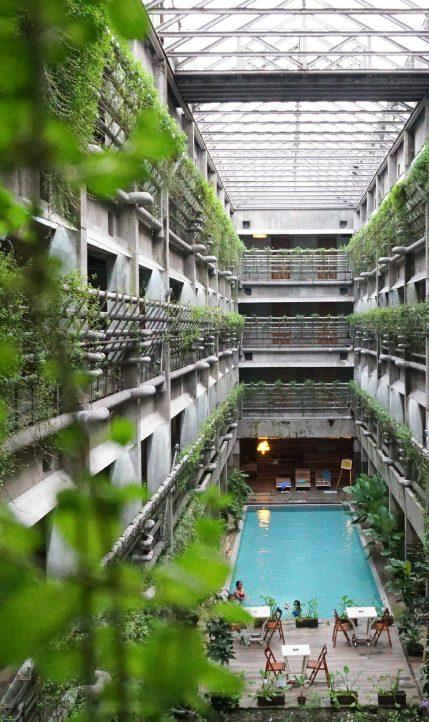
3 minute read
Arabian hospitality smooth sailing in rough seas
from ATM Yearbook 2022
by GT Media ME
Kostas Nikolaidis, Executive Middle East, Africa & Greece, STR, explains why 2022 is proving a remarkable year for the region’s hotel sector, led by Dubai
Following the monumental impact of the COVID-19 pandemic in 2020 and what felt like the end of travel as we know it, 2021 was luckily the pivot point for the hospitality industry in the Middle East. Despite the rough start for most global regions still impacted by lockdowns, the Middle East achieved a steady growth with hotel occupancy gradually recovering throughout the year.
Fortuitously, the Revenue Per Available Room (RevPAR) drop to just 20% of comparable pre-pandemic levels, soon gave way to a steady recovery with considerable uplift through the second half of 2021.
With COVID vaccines becoming available for the first time since the pandemic started, hopes were high for the travel and hospitality sector during the first half of the year.
The initial slow rollout and mostly conservative government policies during this transition period slowed recovery down. London and most major European capitals struggled to attract demand as quarantine and restrictions remained a barrier to travel.
In the Gulf, Oman and Kuwait imposed significant restrictions for travel through the first half of the year with severe negative effects for their hotel performance. Interestingly, leisure markets that remained open to travel, like Miami and Dubai, witnessed a substantial influx of international demand.
Miami thrived from spring break onwards while Dubai had gotten off to a good start to the year already with steady tourism inflows, staycations and many visitors for months waiting for restrictions to ease in their home country or working remotely.
This is in stark contrast to the holy cities of Makkah and Medina, where millions of pilgrims usually arrive through the year and particularly during Ramadan.
Their absence was sorely felt for the second year in a row as restrictions meant that only a limited number of worshippers were allowed.
After the ‘summer lull’, which naturally represents the low season for hotels in the Gulf, significant resumption of travel, events as well as conferences, ensued from September onwards.
Performance sharply rebounded in Dubai from October as the much-awaited Expo 2020 finally opened its gates.
Together with hotel occupancy rising to highs of 90%, Average Daily Rates (ADR) started to sharply rebound and almost reached AED 1,000 during the T20 Cricket World Cup, a major sporting event that was originally to take place in India, but ended up being co-hosted by the UAE and Oman instead. Events proved to be major drivers of hotel performance across the region.
The inaugural F1 Grand Prix races in Doha and Jeddah both resulted in record performance for hotels in those destinations. Revenue per available room (RevPAR) spiked to US$400 in Jeddah and $110 in Doha during the respective race weekends. Despite Omicron headwinds just before Christmas, New Year’s Eve hotel performance in Dubai broke all past records with an ADR of $532.
Hotel room demand for the night was 2.5 times higher than Paris.
About
Kostas Nikolaidis designs and oversees strategic business development initiatives for key projects across Middle East, Africa and Greece. Over the years he’s become proficient in delivering custom data solutions with projects undertaken for both private and government sector clients. He enjoys delivering hotel data insights and thought-provoking content on presentations, panels, blogs/articles and social media. Prior to joining STR, Kostas worked for Starwood Hotels and Resorts and the Edwardian Hotel Group London where he also completed their Graduate Management Programme.
Evidence to the monumental recovery that Dubai has been experiencing is the fact it managed to attract the same hotel demand of 31.2 million rooms sold as London, Paris and Oslo combined. That’s almost 1% of the global hotel room demand for the year.
In February 2022, the pandemic recovery took another step forward with the Omicron wave subsiding and travel restrictions easing further. The countdown to the end of Expo 2020 was accompanied with tremendous hotel demand in Dubai
For the second half of February and throughout March, occupancy mostly hovered above 90%, overall, a positive start for hotel performance in the region, successfully carrying over the momentum from 2021. With yet another calendar full of exciting events and fewer restrictions now in place, 2022 is poised to be another year of recovery and growth for the region.







